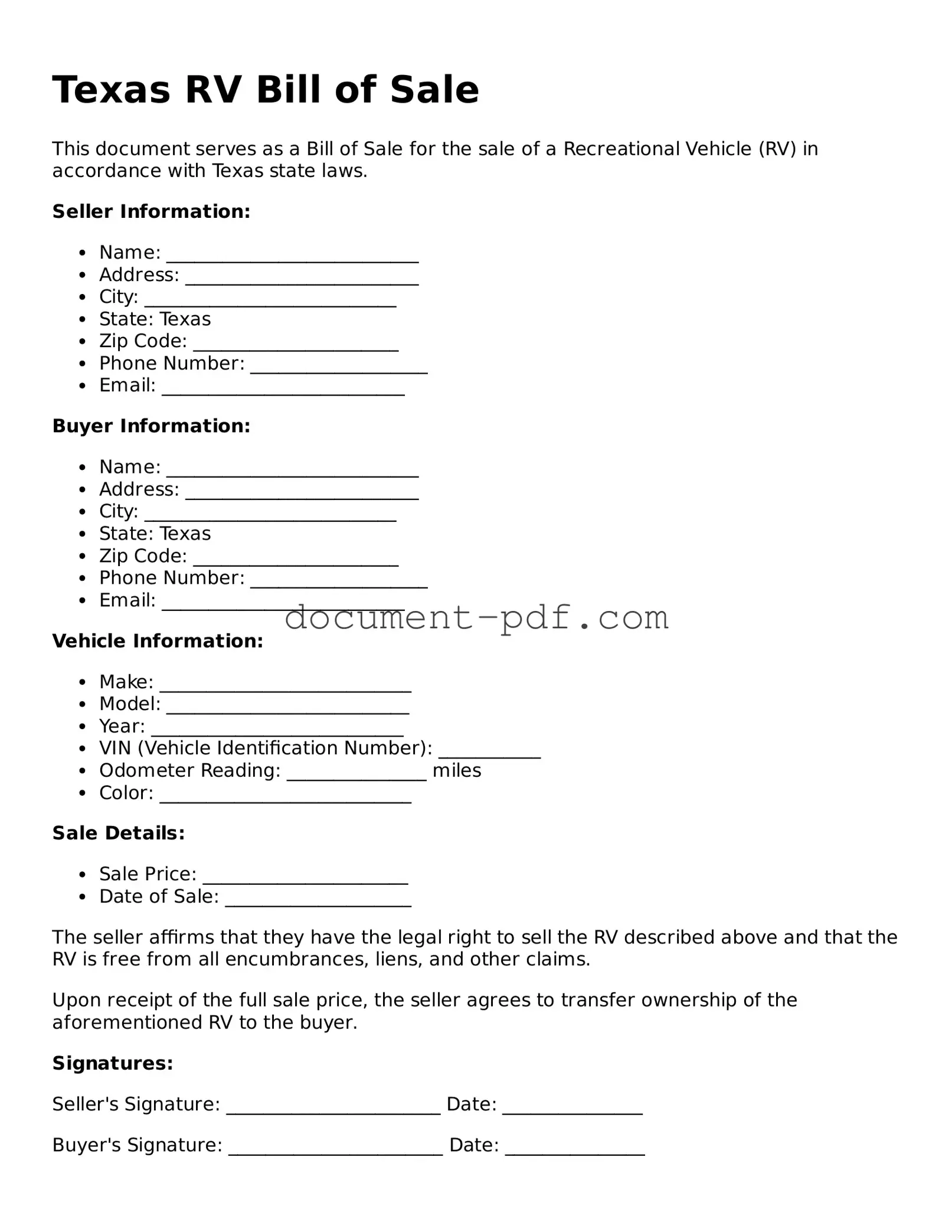Attorney-Verified Texas RV Bill of Sale Template
The Texas RV Bill of Sale form is a crucial document that serves as proof of the sale and purchase of a recreational vehicle in Texas. This form not only protects both the buyer and the seller but also ensures that the transaction is legally recognized. If you're ready to complete your RV sale, fill out the form by clicking the button below.
Access RV Bill of Sale Editor Here

Attorney-Verified Texas RV Bill of Sale Template
Access RV Bill of Sale Editor Here
Finish the form without slowing down
Edit your RV Bill of Sale online and download the finished file.
Access RV Bill of Sale Editor Here
or
Click for PDF Form
